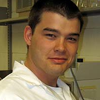St. John's Wort (hypericum perforatum) is an herb that has been widely steeped in the tradition of healing in over 400 years of cited medicinal uses.
Its name comes from two different characteristics of the plant in relation to John the Baptist. First, the flower of the plant blooms around June 24, which is St. John's day. Second, upon squeezing the buds of the flowers, a red pigmented liquid seems to ooze out, symbolic of the blood of St. John. "Wort" is derived from the Old English word that mean "root." The herb is grown all over the world, from California/Oregon and the Midwest in the U.S. to Australia, North Africa, West Asia, and Europe. St. John's Wort is a perennial with yellow flowers and many stems. Historically, it has been used to ward off evil sprits, discourage fevers, and give warriors in battle heightened will power when they wore the herb around their neck, among other uses. Supplements of high quality St. John's Wort are available from Bodybuilding.com.
2. What does it do and what scientific studies give evidence to support this?
Recently, a lot of scientific research has been done on St. John's Wort, and they have shown that it has many positive effects when taken as a supplement. It has been used widely to support conditions of anxiety, depression, herpes virus, infection, and minor injuries, as well as ear infections. A study of 23 clinical studies conducted in Britain showed that St. John's Wort is more effective than a placebo in treading mild to moderate depression. Studies have also shown St. John's Wort to be an anti-viral medicine, as it has been supportive of treating herpes and HIV. Perhaps one of the more important implications to bodybuilders is the fact that St. John's Wort has been found extremely effective in losing weight. Scientists theorize that the herb works by affecting the seratonin levels in the brain, which causes one to feel less hungry.
3. Who needs it and what are some symptoms of deficiency?
Anyone who experiences anxiety or mild to moderate depression could benefit from supplementation of St. John's Wort. For athletes, bodybuilders, or anyone who wants to get more cut or make their body look better by psychologically losing the urge to overeat fatty foods, St. John's Wort is a good way to go.
4. How much should be taken? Are there any side effects?
A good amount of St. John's Wort to take is one to two mg containing 0.2 percentage hypericin three times per day. The only known side effects is phototoxicity, meaning those with fair skin should avoid tanning beds and heavy exposure to the sun while supplementing with St. John's Wort.

